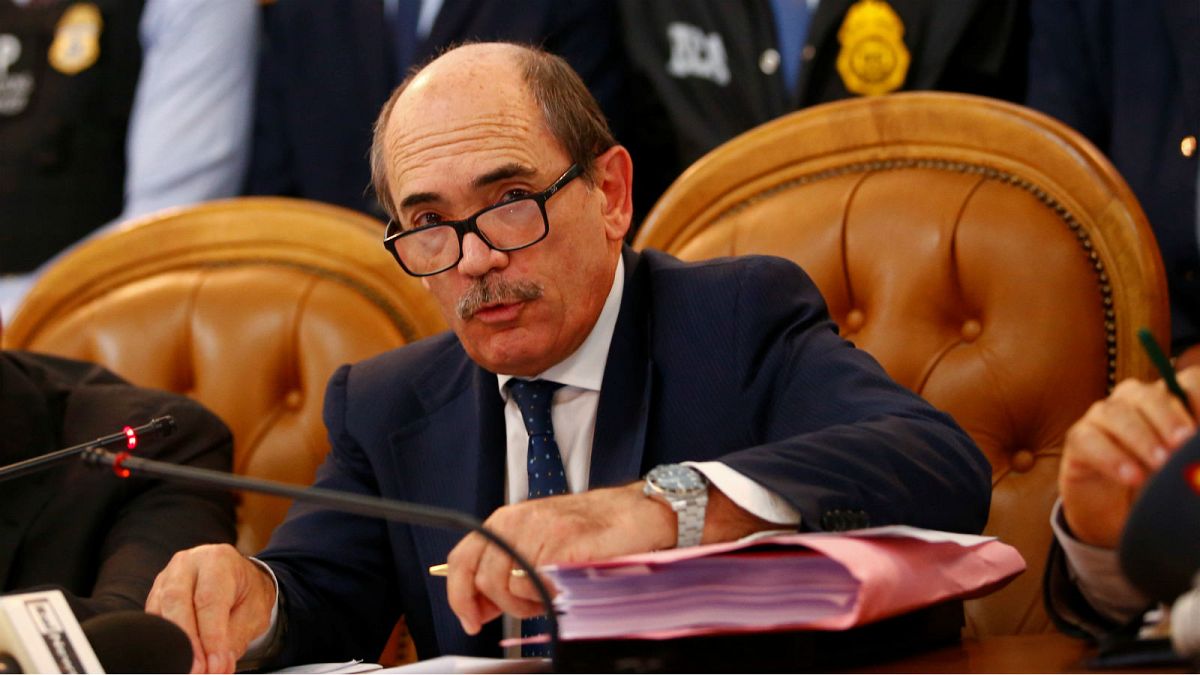Italian anti-mafia prosecutor Federico Cafiero De Raho told Euronews that the sentencing of more than 100 people this week was proof that 'Ndrangheta’s cells “are able to develop everywhere”.
Italy’s most powerful organised crime network, the 'Ndrangheta, is infiltrating countries across Europe, where it has established businesses as a cover for its illicit drug trafficking operations, anti-mafia and counterterrorism prosecutor Federico Cafiero De Raho told Euronews.
The group, based in the southwestern region of Calabria, hit headlines this week when a court in the northern city of Reggio Emilia handed down 118 prison terms totalling over 1,200 years for its infiltration of the economy there.
Former national football star Vincenzo Iaquinta was among those sentenced in the trial after being found guilty of a firearms offence. The judge dismissed accusations that he was involved with the 'Ndrangheta, but said his father, who was sentenced to 19 years in prison, did have mafia ties.
But it is not only Italian cities that the group is infiltrating.
Cafiero De Raho told Euronews that the mass sentencing proved that cells of the 'Ndrangheta “are able to develop everywhere."
The ‘Ndrangheta has grown steadily over the past decade due to its role in trafficking drugs into Europe from South America.
"The way in which they 'pollute' the territory is the same way they use in their territories of origin,” the prosecutor said of its expansion across Europe.
To develop its cocaine trafficking operations, he said the group uses ports in Europe, including those of Antwerp, Rotterdam and Amsterdam as transport links.
He noted that local communities often benefit economically from their arrival.
“Nobody today can have greater economic stability than the societies behind the 'Ndrangheta and the other mafia organisations," he said.
To hide from law enforcement, Cafiero de Raho told Euronews that 'Ndrangheta used cover companies, such as buying numerous businesses in the Netherlands trading flowers internationally to transport drugs and money.
“In some surveys it emerged how they moved with large bags, those to collect the dried leaves, full of money,” he said.
He explained that the group established itself across countries in Europe to create a “Chinese box” that makes it difficult for authorities to follow financial flows, or connect the companies to the 'Ndrangheta.
"In our investigations we verified how the 'Ndrangheta had moved from The Netherlands, where it had a strong contacts, to Germany. Then from Germany, to Belgium. From there, it moved to other European countries, for example Romania,” he said.
“In one of the investigations, it emerged that some companies were opened in Romania using the cover of recycling operations. Those companies, which did business with Italy, were then moved to the United Kingdom after two years and then were closed.”
According to FBI estimates, the 'Ndrangheta has some 6,000 members. The group is reportedly estimated to control about 80% of Europe’s cocaine traffic.


